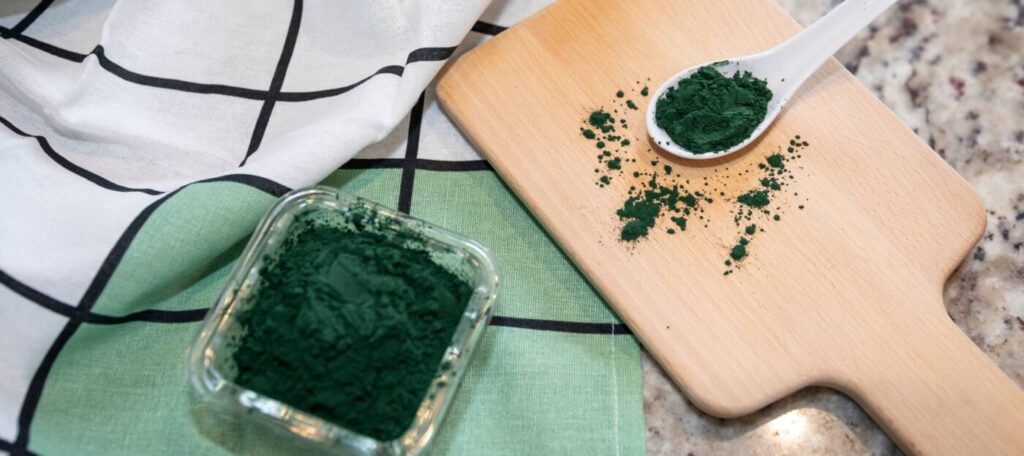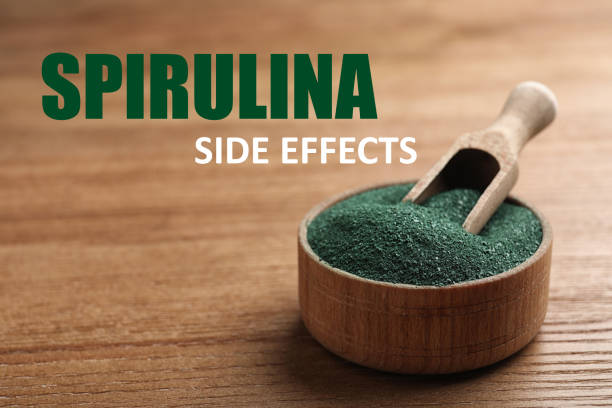Spirulina and Chlorella are types of microalgae that belong to a large group of mostly aquatic microorganisms. These superfoods are packed with essential nutrients, including proteins, vitamins, minerals, fatty acids, and powerful antioxidants. They are commonly consumed in supplement form and are often added to smoothies, juices, and other health foods to enhance nutritional value.
Both Chlorella and Spirulina have been praised for their ability to improve overall health. They may help reduce heart disease risk factors, boost the immune system, and enhance exercise performance. However, while these supplements offer numerous benefits, it is essential to be aware of the chlorella spirulina tablets side effects to make an informed decision.
In this article, we will explore the possible side effects of chlorella and spirulina tablets, their differences, and how to minimize potential risks. Understanding these aspects will help you decide whether these supplements are right for you.
Health Benefits Of Chlorella and Spirulina
1. Supports Detoxification
Chlorella and Spirulina are known for their natural detoxifying properties. They aid in liver cell repair, help remove heavy metals from the body, and enhance blood oxygenation. However, one of the potential chlorella spirulina tablets side effects is that rapid detoxification may lead to temporary digestive discomfort or headaches in some individuals.
2. May Help Treat Certain Conditions
Regular consumption of these nutrient-rich microalgae has been linked to various health benefits, including weight management and relief from colds, Crohn’s disease, constipation, bad breath, ulcers, ADHD, diabetes, stress, anxiety, and PMS. Despite these advantages, some users may experience mild side effects such as nausea, bloating, or allergic reactions.
3. Excellent Source of High-Quality Protein
Both Chlorella and Spirulina provide all essential amino acids, making them a complete protein source. Protein plays a crucial role in:
- Building and maintaining muscle mass
- Strengthening the immune system
- Supporting the repair and growth of body cells
However, individuals with autoimmune conditions should be cautious, as one of the chlorella spirulina tablets side effects is that it may overstimulate the immune system.
4. Packed with Antioxidants
The blue-green hue of these algae is a sign of their high antioxidant content. Antioxidants help combat free radicals and protect against oxidative stress.
- Chlorella is rich in chlorophyll, vitamin C, lycopene, lutein, and beta-carotene.
- Spirulina contains phycocyanin, which has anti-inflammatory, liver-protective, and immune-boosting properties.
While beneficial, excessive consumption may lead to digestive upset in some individuals.
5. May Improve Heart Health
Research suggests that both Chlorella and Spirulina can positively impact heart health by improving blood lipid profiles and helping regulate blood pressure. However, those on blood-thinning medications should consult a doctor, as one of the potential chlorella spirulina tablets side effects is an increased risk of bleeding.
6. May Help Manage Blood Sugar Levels
Studies indicate that Chlorella and Spirulina may support blood sugar regulation by improving insulin sensitivity. While this is beneficial for people with diabetes, sudden changes in blood sugar levels can cause dizziness or weakness in some individuals.

Common Side Effects Of Chlorella Spirulina Tablets
Chlorella and Spirulina are packed with nutrients and offer many health benefits, but they may also cause some side effects. While most people tolerate them well, it’s good to know what to expect when taking these supplements. Here are some common chlorella spirulina tablets side effects to be aware of:
1. Digestive Issues
Some people experience bloating, gas, or stomach cramps when they first start taking chlorella or spirulina tablets. This usually happens because these supplements are rich in fiber and detoxifying compounds. To avoid discomfort, start with a small dose and increase it gradually.
2. Allergic Reactions
Though rare, some people may be allergic to chlorella or spirulina. Symptoms can include itching, swelling, or breathing difficulties. If you notice any allergic reactions, stop taking the supplement immediately and seek medical advice.
3. Detox Symptoms
Since chlorella and spirulina help remove toxins from the body, some people might experience mild detox symptoms like headaches, nausea, or fatigue. Drinking plenty of water and starting with a lower dose can help ease these effects.
4. Increased Immune Activity
These microalgae are known to boost the immune system. While this is great for most people, those with autoimmune conditions should be cautious, as one of the possible chlorella spirulina tablets side effects is overstimulating the immune response.
5. Heavy Metal Contamination
Poor-quality chlorella and spirulina supplements may contain traces of heavy metals, depending on where they are sourced. Always choose high-quality, third-party-tested products to ensure safety.
6. Blood Thinning Effects
Chlorella and spirulina contain vitamin K, which can affect blood clotting. If you take blood thinners or have a bleeding disorder, consult your doctor before using these supplements.
Who Should Avoid Chlorella and Spirulina?
While Chlorella and Spirulina offer many health benefits, they may not be suitable for everyone. Some individuals should be cautious due to potential chlorella spirulina tablets side effects. Here’s who should avoid these supplements:
1. Individuals with Autoimmune Diseases
Chlorella and Spirulina are known to boost the immune system. While this is beneficial for many, people with autoimmune diseases like lupus, rheumatoid arthritis, or multiple sclerosis may experience worsened symptoms. Since these supplements stimulate immune activity, they could potentially trigger flare-ups.
2. Pregnant or Nursing Women
There is limited research on the safety of Chlorella and Spirulina during pregnancy and breastfeeding. While they are packed with nutrients, it’s best for pregnant and nursing women to consult a healthcare provider before adding these supplements to their routine. Some possible chlorella spirulina tablets side effects during pregnancy may include digestive discomfort or allergic reactions.
3. People on Blood Thinners
Chlorella is high in vitamin K, which plays a role in blood clotting. This means that individuals taking blood-thinning medications, such as warfarin, should avoid these supplements unless advised otherwise by their doctor. Taking them alongside blood thinners could interfere with medication effectiveness and increase health risks.
Differences Of Chlorella And Spirulina
While both Chlorella and Spirulina are nutrient-dense superfoods, they have some important differences in their composition and nutritional value. Understanding these differences can help you choose the right supplement while being aware of possible chlorella spirulina tablets side effects.
1. Cellular Structure
- Chlorella is unicellular, meaning it consists of a single cell.
- Spirulina is multicellular, giving it a slightly different structure and digestion process.
2. Protein Content
Both Chlorella and Spirulina are excellent sources of protein, but their content varies:
- Spirulina contains up to 70% protein by weight, making it one of the richest plant-based protein sources.
- Chlorella has around 59% protein but is still highly nutritious.
3. Vitamin and Mineral Differences
- Chlorella is higher in vitamin A, niacin, riboflavin, and B6, supporting skin health, energy production, and brain function.
- Spirulina is richer in vitamin E, thiamin (B1), and vitamin K, which help with immune function and blood clotting.
4. Omega Fatty Acid Content
- Chlorella contains more omega-3 fatty acids, known for their heart and brain health benefits.
- Spirulina has higher levels of omega-6 fatty acids, particularly γ-linolenic acid (GLA), which has anti-inflammatory properties.
FAQ
What are the common side effects of Chlorella and Spirulina tablets?
The most common side effects include digestive discomfort like bloating, gas, or upset stomach, especially when starting the supplement. Some people may also experience mild detox symptoms like headaches or fatigue.
Can Chlorella and Spirulina cause allergies?
Yes, though rare, allergic reactions can occur. Symptoms might include itching, swelling, or difficulty breathing. If you experience these signs, stop taking the tablets and seek medical help immediately.
Do Chlorella and Spirulina tablets interact with medications?
Yes, especially blood thinners due to the vitamin K content in Chlorella. If you are on medication, consult your doctor before using these supplements to avoid any interactions.
Are Chlorella and Spirulina safe for people with autoimmune conditions?
These supplements stimulate the immune system, which could worsen symptoms for people with autoimmune diseases like lupus or rheumatoid arthritis. It’s best to consult a healthcare provider before using them.
Can Chlorella and Spirulina cause detox symptoms?
Yes, some people may experience headaches, nausea, or fatigue as their body detoxifies. These symptoms are usually temporary and can be minimized by starting with a lower dose and drinking plenty of water.
What should I do if I experience side effects?
If you experience any severe or persistent side effects, stop taking the supplements and consult a healthcare provider. It’s important to ensure these supplements are suitable for your health.
Final Thoughts
Chlorella and Spirulina offer a wide range of health benefits, but it’s essential to be aware of potential chlorella spirulina tablets side effects before adding them to your routine. To minimize risks, start with small doses, choose high-quality supplements, and consult a healthcare professional if you have underlying health conditions.

